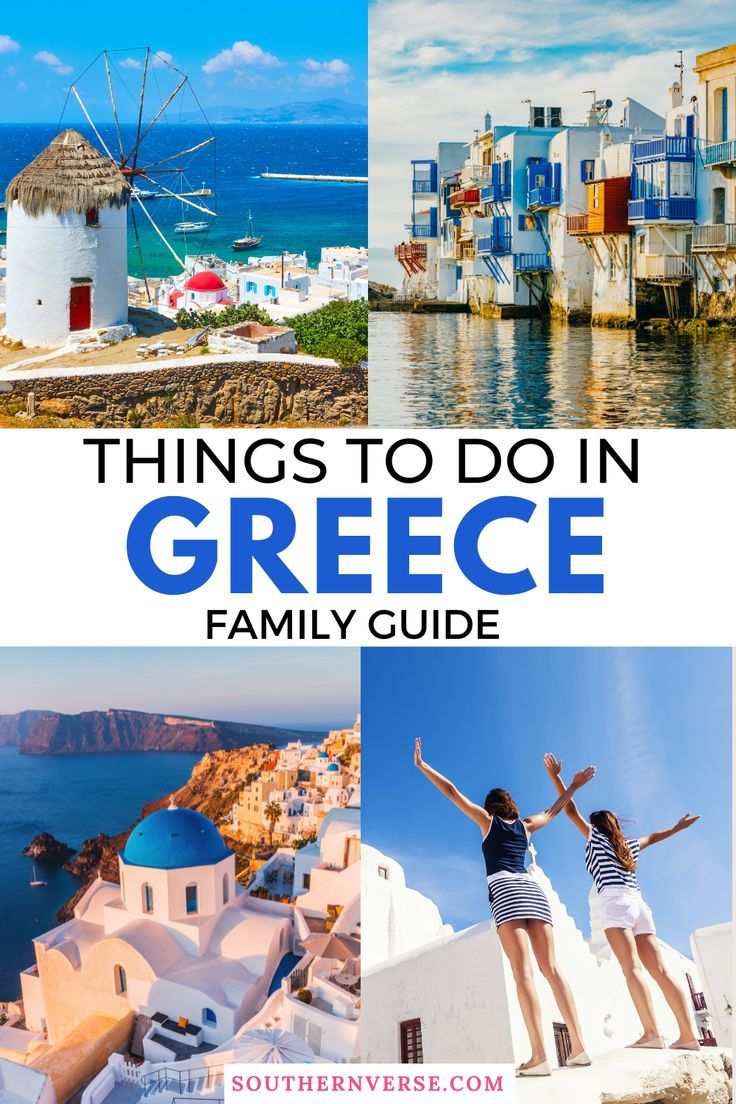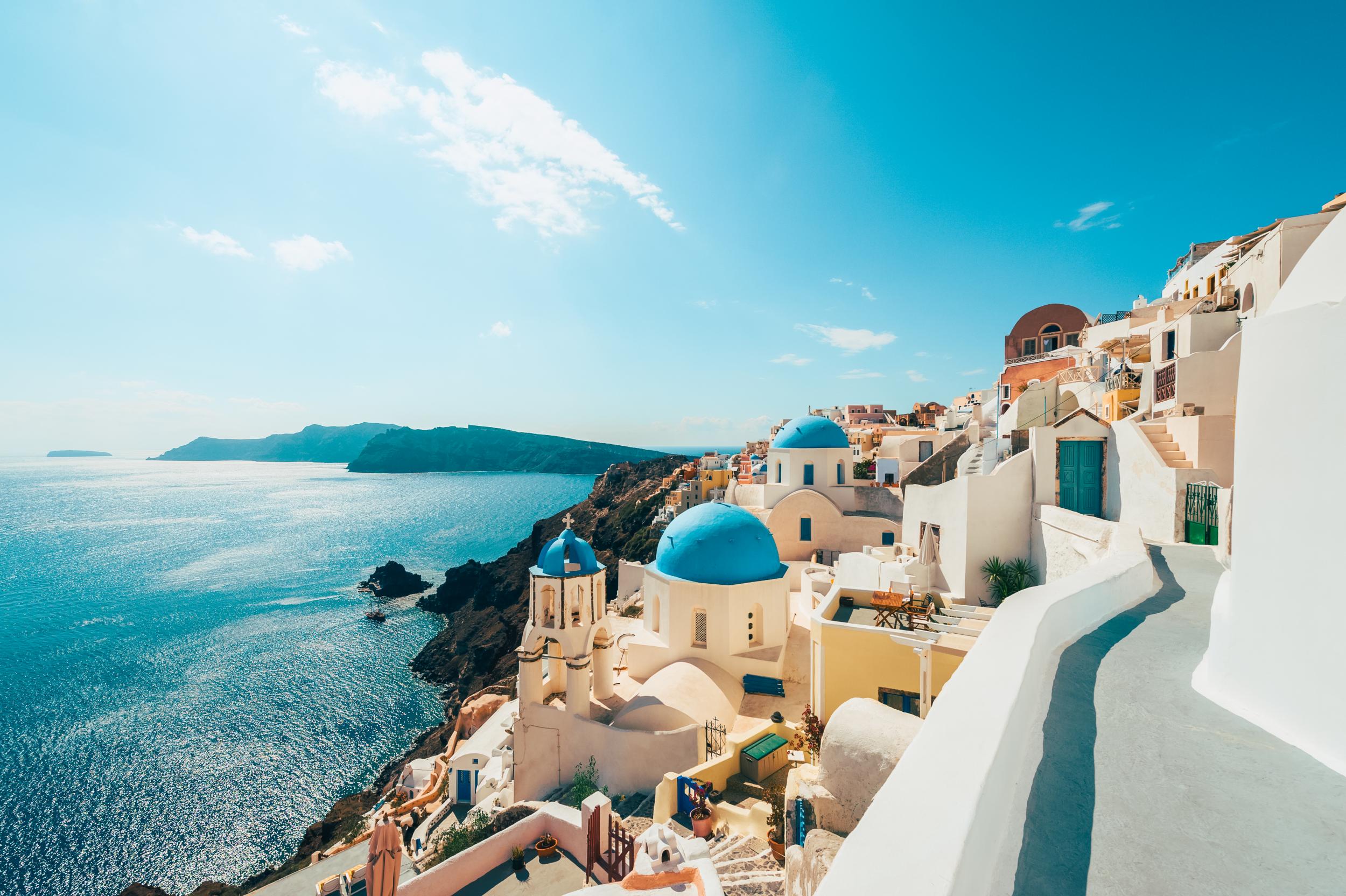
Greece, the cradle of Western civilization, a land steeped in myth, history, and breathtaking beauty, beckons travelers from across the globe. From the sun-drenched beaches of the islands to the ancient ruins that whisper tales of gods and heroes, Greece offers an experience that is both enriching and unforgettable. This guide is your compass, navigating you through the essentials of planning and experiencing the magic of Greece.
1. A Glimpse into the Past and Present: Why Visit Greece?
Greece is more than just a destination; it’s an immersive journey through time. The sheer weight of history is palpable, evident in the majestic Parthenon atop the Acropolis, the remnants of the ancient Agora, and the amphitheatres that once echoed with dramatic performances. Beyond the historical wonders, Greece boasts:

Related Articles about Odyssey Awaits: Your Comprehensive Guide to Traveling to Greece:
- The City of Angels Awaits: Your Ultimate Los Angeles Travel Guide
- Unveiling the Enchantment of Yogyakarta: A Guide to the Best Hotels and Beyond
- Lima: A Culinary and Cultural Kaleidoscope – Your Ultimate Travel Guide
- Bali: A Traveler’s Paradise – Your Ultimate Guide to the Island of Gods
- Dublin’s Enduring Charm: A Journey Through Its Top Attractions and Timeless Appeal
- Stunning Natural Beauty: Turquoise waters, dramatic cliffs, verdant valleys, and volcanic landscapes paint a picture of unparalleled beauty. The Greek islands, each with its unique character, offer diverse experiences from vibrant nightlife to secluded tranquility.
- Delicious Cuisine: Greek food is a celebration of fresh, local ingredients. From the simple pleasures of a perfect Greek salad to the rich flavors of moussaka and souvlaki, your taste buds are in for a treat.
- Warm Hospitality: Greeks are renowned for their hospitality, welcoming visitors with open arms and a genuine desire to share their culture.
- Island Hopping Paradise: The Greek Islands offer a unique opportunity to explore a variety of landscapes and cultures. Whether you’re seeking a party atmosphere or a secluded escape, there’s an island for you.
- Affordable Luxury: Greece can cater to a wide range of budgets. From budget-friendly hostels to luxurious resorts, you can tailor your experience to your preferences.
2. Top Attractions: Unveiling the Treasures of Greece
Greece is brimming with attractions, and choosing where to go can be a delightful challenge. Here are some of the must-see destinations:

- Athens: The capital city is a treasure trove of ancient wonders.
- Acropolis: The iconic citadel housing the Parthenon, Erechtheion, and Propylaea.
- Acropolis Museum: A modern museum showcasing artifacts found on the Acropolis.
- Ancient Agora: The heart of ancient Athenian life, where philosophy, politics, and commerce thrived.
- Plaka: The charming old town with narrow streets, tavernas, and souvenir shops.
- Temple of Olympian Zeus: The colossal ruins of a once-grand temple.
- Delphi: The "Navel of the World," a UNESCO World Heritage site and the sanctuary of Apollo. Explore the ruins of the temple, theatre, and stadium.
- Meteora: A surreal landscape of towering rock formations crowned with ancient monasteries. Witness the breathtaking views and delve into the monastic history.
- Santorini: Famous for its white-washed villages perched on caldera cliffs, offering stunning sunsets, volcanic beaches, and luxurious accommodations.
- Oia: The quintessential Santorini village, known for its iconic blue-domed churches and sunset views.
- Fira: The capital, offering vibrant nightlife and shopping.
- Red Beach & Black Beach: Unique volcanic beaches with dramatic landscapes.
- Mykonos: Known for its vibrant nightlife, picturesque windmills, and beautiful beaches.
- Mykonos Town (Chora): A maze of whitewashed streets, boutiques, and restaurants.
- Little Venice: Picturesque waterfront with colorful buildings.
- Paradise & Super Paradise Beaches: Famous for their lively beach parties.
- Crete: The largest Greek island, offering a diverse range of landscapes, from mountains to beaches, and rich Minoan history.
- Knossos Palace: The archaeological site of the Minoan civilization’s palace.
- Samaria Gorge: A stunning gorge for hiking.
- Elafonisi Beach: Famous for its pink sand and turquoise waters.
- Rhodes: A medieval city, a UNESCO World Heritage site, and an island with beautiful beaches.
- Rhodes Town: Explore the medieval city walls, the Palace of the Grand Master, and the Street of the Knights.
- Lindos: A picturesque village with a stunning acropolis.
- Tsambika Beach: A beautiful sandy beach.
- Thessaloniki: Greece’s second-largest city, with a vibrant cultural scene and rich history. Explore the White Tower, Roman ruins, and bustling markets.
3. Planning Your Trip: Essential Travel Tips
Before embarking on your Greek adventure, consider these important tips:
- Best Time to Visit: The shoulder seasons (April-May and September-October) offer pleasant weather, fewer crowds, and lower prices. July and August are the peak seasons, with hot weather and higher prices.
- Visa Requirements: Check the visa requirements for your nationality. Citizens of the EU, US, Canada, Australia, and New Zealand can usually stay for up to 90 days without a visa.
- Currency: The Euro (€) is the currency used in Greece.
- Language: Greek is the official language. English is widely spoken in tourist areas. Learning a few basic Greek phrases is always appreciated.
- Transportation:
- Flights: International airports are located in Athens, Thessaloniki, and some of the larger islands.
- Ferries: The primary mode of transportation between the islands. Booking in advance, especially during peak season, is highly recommended.
- Domestic Flights: Available between larger islands and the mainland.
- Buses: A reliable and affordable way to travel within the mainland and some islands.
- Rental Cars: Offer flexibility for exploring, especially on the mainland and larger islands. Be aware of narrow roads and parking challenges in some areas.
- Taxis: Readily available in cities and towns.
- Accommodation: Book accommodations in advance, especially during peak season. Consider a mix of options:
- Hotels: Range from budget-friendly to luxury resorts.
- Apartments/Villas: Offer more space and self-catering facilities.
- Hostels: A budget-friendly option, especially for solo travelers.
- Guesthouses/B&Bs: Provide a more intimate and local experience.
- Health and Safety:
- Sun Protection: Pack sunscreen, a hat, and sunglasses.
- Hydration: Drink plenty of water, especially during the summer months.
- Mosquito Repellent: Use mosquito repellent, particularly during the evening.
- Food Safety: Be cautious of street food and ensure food is cooked thoroughly.
- Emergency Numbers: Learn the emergency numbers (112 for general emergencies).
- Travel Insurance: Purchase comprehensive travel insurance that covers medical expenses, trip cancellation, and lost belongings.
- Budgeting: Greece can be affordable, but costs vary depending on the season, location, and travel style. Budget for accommodation, food, transportation, activities, and souvenirs.
- Respect Local Customs: Dress modestly when visiting religious sites. Be mindful of noise levels in residential areas. Tipping is customary in restaurants and for services.
4. Accommodation Options: Finding Your Perfect Base
Greece offers a diverse range of accommodation options to suit every budget and preference:
- Hotels: From budget-friendly guesthouses to luxurious resorts, hotels are available in all major cities and tourist destinations. Consider location, amenities, and reviews when choosing a hotel.
- Apartments & Villas: Ideal for families, groups, or those seeking more space and self-catering facilities. Many apartments and villas offer stunning views and private pools.
- Hostels: A budget-friendly option for solo travelers or those looking to meet other travelers. Hostels are common in major cities and popular islands.
- Guesthouses & Bed & Breakfasts: Offer a more intimate and local experience, often with personalized service and homemade breakfasts.
- Camping: Available on some islands and the mainland, offering a cost-effective way to experience the outdoors.
5. Getting Around: Navigating the Greek Landscape
Transportation in Greece is well-developed, with options to suit different travel styles and budgets:
- Flights: Domestic flights connect major cities and islands, saving time but often costing more than other options.
- Ferries: The primary mode of transportation between the islands. Ferry routes and schedules vary, so plan your itinerary carefully and book in advance, especially during peak season. Ferry types include:
- Conventional Ferries: Slower, but often more affordable.
- High-Speed Ferries: Faster and more expensive.
- Buses: A reliable and affordable option for traveling within the mainland and on some islands. Bus routes connect major cities and towns.
- Rental Cars: Offer flexibility for exploring the mainland and larger islands. Be aware of narrow roads, steep inclines, and parking challenges in some areas.
- Taxis: Readily available in cities and towns. Agree on a fare before starting your journey.
- Local Transportation: In cities, consider using the metro, trams, or local buses.
6. Food, Glorious Food: A Culinary Journey Through Greece
Greek cuisine is a highlight of any trip. Prepare your taste buds for a culinary adventure:
- Must-Try Dishes:
- Greek Salad (Horiatiki): A refreshing salad with tomatoes, cucumbers, onions, olives, feta cheese, and olive oil.
- Moussaka: A baked dish with layers of eggplant, minced meat, and béchamel sauce.
- Souvlaki: Grilled meat skewers, often served with pita bread, tomatoes, onions, and tzatziki.
- Gyros: Similar to souvlaki, but with meat cooked on a vertical rotisserie.
- Spanakopita: Spinach pie.
- Tzatziki: A yogurt-based dip with cucumber, garlic, and dill.
- Dolmades: Stuffed grape leaves.
- Fresh Seafood: Enjoy grilled octopus, calamari, and various fish dishes.
- Dining Experiences:
- Tavernas: Traditional Greek restaurants, often family-run, serving authentic dishes.
- Psarotavernas: Seafood restaurants.
- Souvlaki Shops: Quick and affordable options for souvlaki and gyros.
- Cafés: Enjoy a traditional Greek coffee (ellinikos kafes) or a frappe.
- Local Produce: Savor fresh, local ingredients, including olives, olive oil, tomatoes, cucumbers, and feta cheese.
7. Best Time to Visit: Weather and Crowds
The best time to visit Greece depends on your priorities:
- Shoulder Seasons (April-May & September-October): Offer pleasant weather, fewer crowds, and lower prices. Ideal for sightseeing and exploring.
- Summer (June-August): Hot weather, perfect for swimming and sunbathing. Expect large crowds and higher prices, especially in July and August.
- Winter (November-March): Mild weather in the south, but cooler and wetter in the north. Many tourist services may be closed.
8. Embracing the Greek Experience: A Final Word
Traveling to Greece is more than just a vacation; it’s an opportunity to immerse yourself in a culture rich in history, beauty, and hospitality. Embrace the slower pace of life, savor the delicious food, and allow yourself to be captivated by the magic of this ancient land. From the Acropolis to the Aegean Sea, Greece promises an unforgettable journey filled with lasting memories. So pack your bags, prepare your camera, and get ready to embark on your own Greek odyssey!





